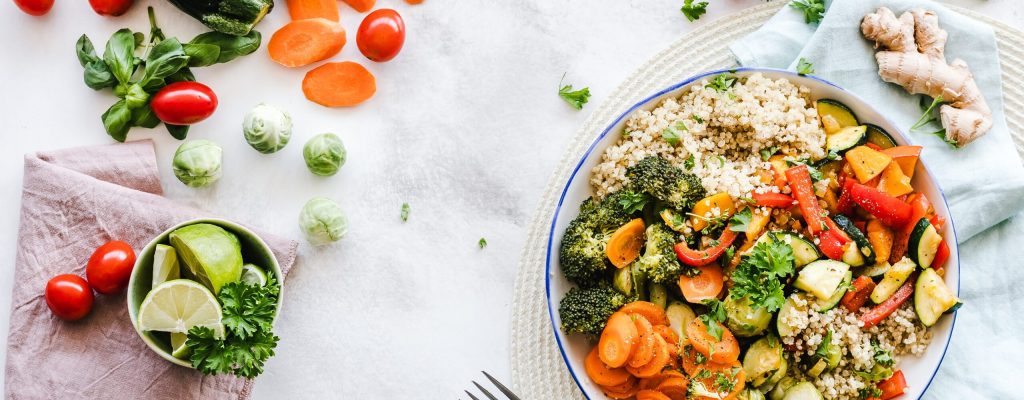
Day to day we humans are creatures of habit. 40-45% of our behaviours are habits. Some are good for our bodies and minds, such as exercise or meditation; others are more harmful, constantly checking our phones or too much gaming. Many of us want to build habits that improve our quality of life. Rather than waiting for a new year to get going, consider taking some pre-emptive steps now.
Habits are repeated behaviours that we don’t need to think about, they operate in our subconscious. Habits are different from routines. Routines are conscious, intentional acts requiring effort and may be uncomfortable. It is natural to look at those people with great habits and assume they are well disciplined, have great willpower. While self-control may be a factor in setting and sticking to a routine, by doing it again and again, the behaviour becomes sub conscious and evolves into a habit.
You can turn a routine into a habit through repetition. Many behaviours generate dopamine release by the brain, this is a happy hormone and the feeling is one that we normally want more of. By repeating an act that releases dopamine, overtime what was a routine becomes a subconscious behavior, a habit. The brain forms new pathways with the routine and repeating the routine solidifies the neural connections so that the behaviour becomes an automatic brain pattern. Paves the highway so to speak.
The time line for building a habit varies. Some actions that release larger amounts of dopamine, such as some stimulants or gambling are more easily formed into habits compared to others, such as an exercise or a sleep routine. These may be slower to evolve into automatic subconscious behaviours but they will. Actions that are more complex or require active thinking are less likely to become habits. Playing an instrument is an example.
You have likely heard a lot about what habits you should cultivate and those you are best off overcoming. In this blog there are 4 habits with reasons how they may help you and a few tips on how to start incorporating them into a routine. Some are based on questions I often have from patients others I thought were less standard. I hope it will be informative, provide some suggestions to get you closer to your goals, and improve your happiness and health.
Do One Thing at a Time
98% of us are not “super taskers”, that is we are not good at multitasking. Doing more than one thing at a time makes the majority of us lose focus and be less productive. Multitasking can also be dangerous. Texting while driving has been found to impair driving as much as drinking and driving.
A common scenario is while talking on the phone, we are checking email, phone notifications, watching TV or some other combination of activities. To improve single-focus performance some suggestions are to shut down devices, notifications, social media feeds and apps not needed for the immediate task. Forest app is one of several resources you can use to improve study or work single-tasking. And it also rewards you by planting trees- a dopamine release.

Morph Your Diet for a Healthier Future
Medics have known for more than 2000 years that people who are obese or overweight are at increased risk for developing serious health condition or dying. The survival gains that have been made in improving life expectancy in the last 200 years are thought to be eroding because of high rates of obesity today.
It’s easy enough to recommend cutting back on junk or processed food and eating a more plant based diet but what if you don’t like to cook, shop or don’t know how or don’t have the time? Like any new activity keeping it simple is a good way to start.
Some suggestions are: plan meals and shop for the days ahead rather than daily, share the load and cost with others, talk to people who like to cook, or check recipes for ideas and inspiration. Some people have found using a meal kit delivery service very helpful. HelloFreshTM was one my son found to be time saving with varied menus which he could tailor to his needs.
Another suggestion for building new habits is the idea of bundling. That is when you do something you don’t really enjoy- pair it with something you do. Preparing and cooking can be more fun in a social setting. Share the prep or cooking time with those you live with or with a neighbour. Another way to bundle is to listen to music or your favorite podcasts or shows. Bundling may even distract you from snacking on what you are preparing.
Although bundling may sound like a contradiction when trying to avoid multitasking, in this setting the reward and prospect of building a new habit is probably better than the loss of focus (unless you burn breakfast).

Get Moving More
According to the World Health Organisation, “Inactivity is a risk factor for chronic diseases and the 4th likely risk factor for death worldwide”. Here we pride ourselves on being active and indeed a lot of us are; we are fortunate to live in an environment with easy access to the outdoors. However 80% of Canadians do not meet the minimal recommended activity levels to prevent chronic disease.
It may come as a surprise that the Canadian movement guidelines are for 2 resistance training sessions per week AND 150 minutes of moderate to intense aerobic activity. That means about 20 minutes per day of aerobic activity, 5 1 hour sessions every 2 weeks, or some other variation. Walking and swimming are examples of moderate activity. Intense aerobic activity is when you’re working hard enough that it’s hard to say more than a few words without catching your breath. If you have any health concerns check with your health care provider to assess your exercise capacity, especially if you have been inactive or have a heart condition.
Whether starting or increasing you physical activity being specific is shown to be more helpful than generalising. Instead of “I am going to start getting out for a walk or hit the weights”, success is more likely when being explicit, “I am going to do an online workout Monday, Wednesday and Friday at 5:30 when I get home”. It also helps to choose something you find fun, for some that might be a spin or Zumba class; or relaxing such as Yoga. Try to find something that gives you an added reward.
Bundling is another good way to boost the enjoyment factor. Try biking or working out with a friend, co-worker or family member who you enjoy and has similar motivations. Exercising with others also raises our level of commitment. You could also bundle with your canine companions; they will be happier and healthier too. Another common pairing idea is listening to enjoyable music, podcast or program. You can also set yourself a challenge, “I will only listen to the next chapter on my audio book when I am on the treadmill”.

Consider Reading
I always thought reading a book was a luxury but I have learned that it is a good habit. Depending on the read, this activity is calming and meditative; it can improve focus and sleep. It also allows you to set aside devices, reduce blue light exposure and have some social media “detox”-which in itself can reduce negative arousal and low mood. If you are not used to reading it can take time to build the ease and engagement; start with small doses. No books, magazines or other paper products on hand? You can borrow from the library or someone with similar preferences or check out second hand books. Maybe join a no-pressure book club for added motivation to get started on making reading into a habit.
